Zero Waste To Landfills
Our ”zero waste to landfills” approach is an environmental strategy aimed at minimizing waste production and eliminating the need for landfills. The goal of the zero waste to landfills approach is not only to reduce the environmental impact of waste but also to promote a more sustainable and circular economy, where resources are reused and recycled, leading to a healthier planet.
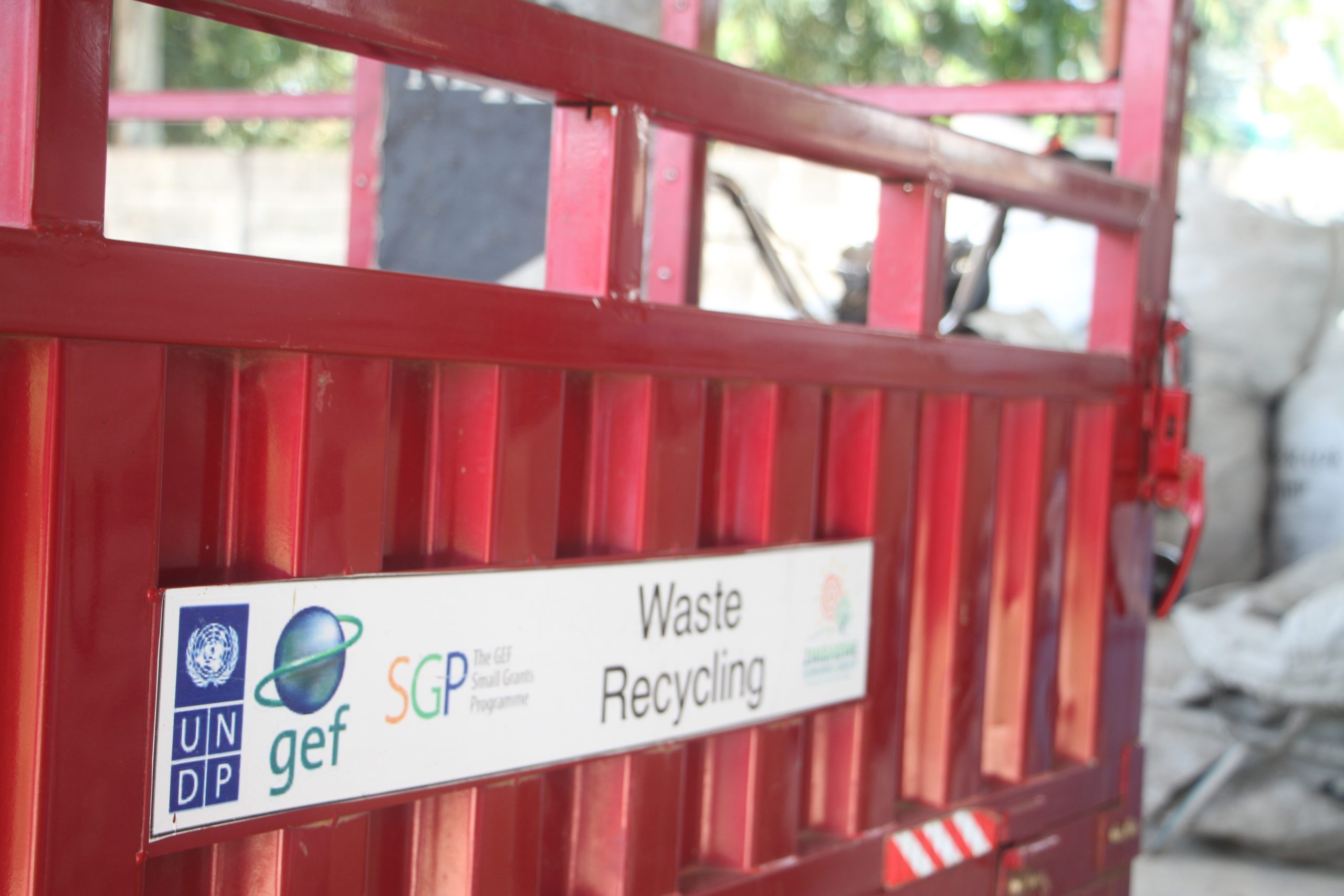
Zimbabwe Agricultural Showgrounds
Waste Transfer FacilityMabvuku/Tafara
Waste Transfer FacilityEpworth
Waste Transfer FacilityHighfield Waste Transfer Facility
Clean-Up Campaigns
The programme was commissioned in 2016 which saw the reclamation of a dumpsite which was piled over 10years at the Harare Showgrounds and the construction of a mechanised waste transfer station that processes organic waste and plastic waste into raw-materials. The facility is the main data contributor for the Low Emissions Development Strategy (LEDS) waste sector for Zimbabwe. During the financial year ending 31 December 2022, the programme made the following impacts: 23 full time workers enrolled on the ZSG income safety net scheme 65Wastepickers that feed into the facility that receive an average payout above $60 a month. Diverts an average of 10 tons of organic waste through vermi-composting, 16 T of PET, 6 Tonnes Paper. -15 study visits by universities (local/regional), municipalities and schools.
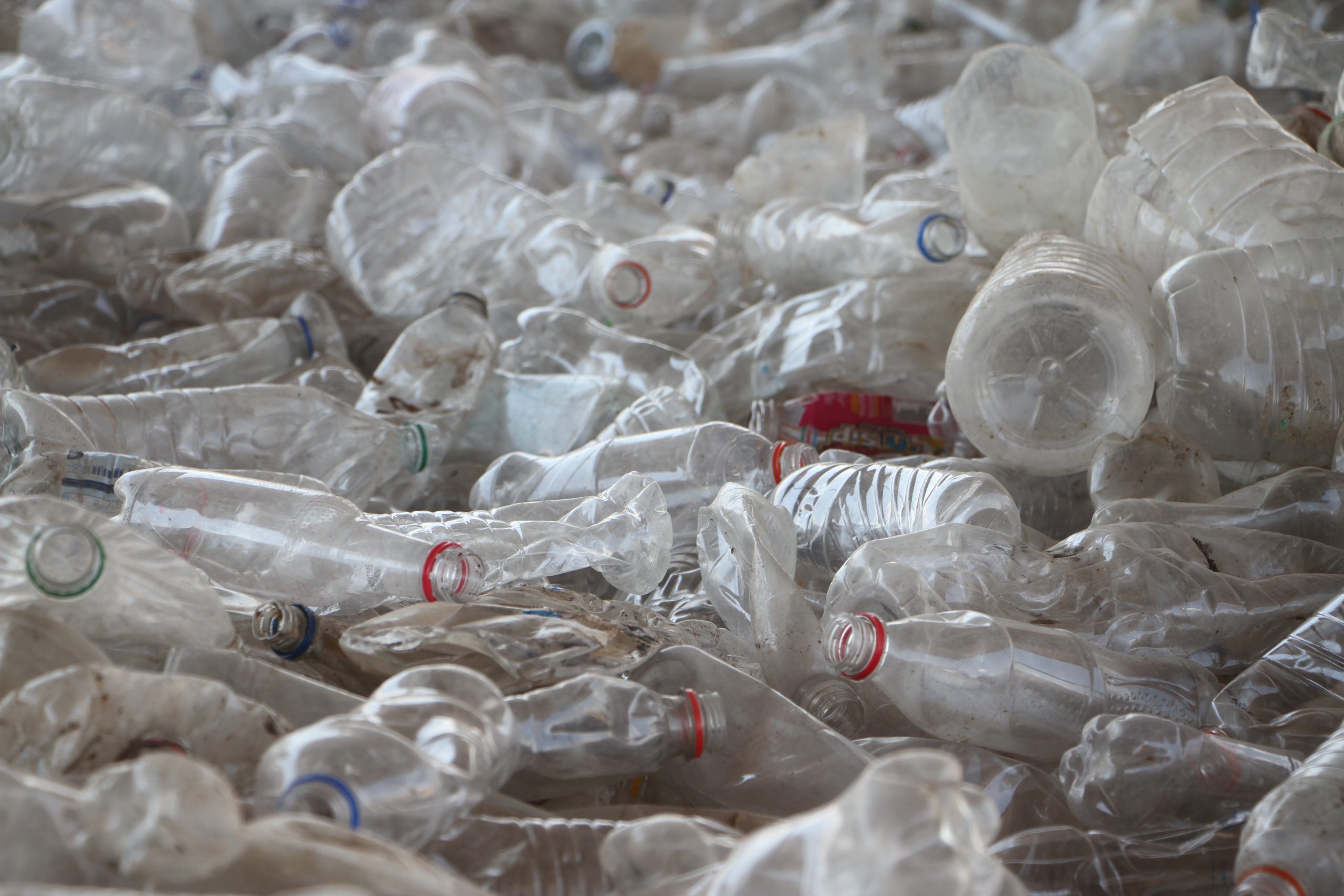
This facility was opened in ….. with support from …… The centre serves as a waste catchment area for the surrounding community. It is operated by local community members who are embarking in different livelihood projects anchored on environmental conservation.
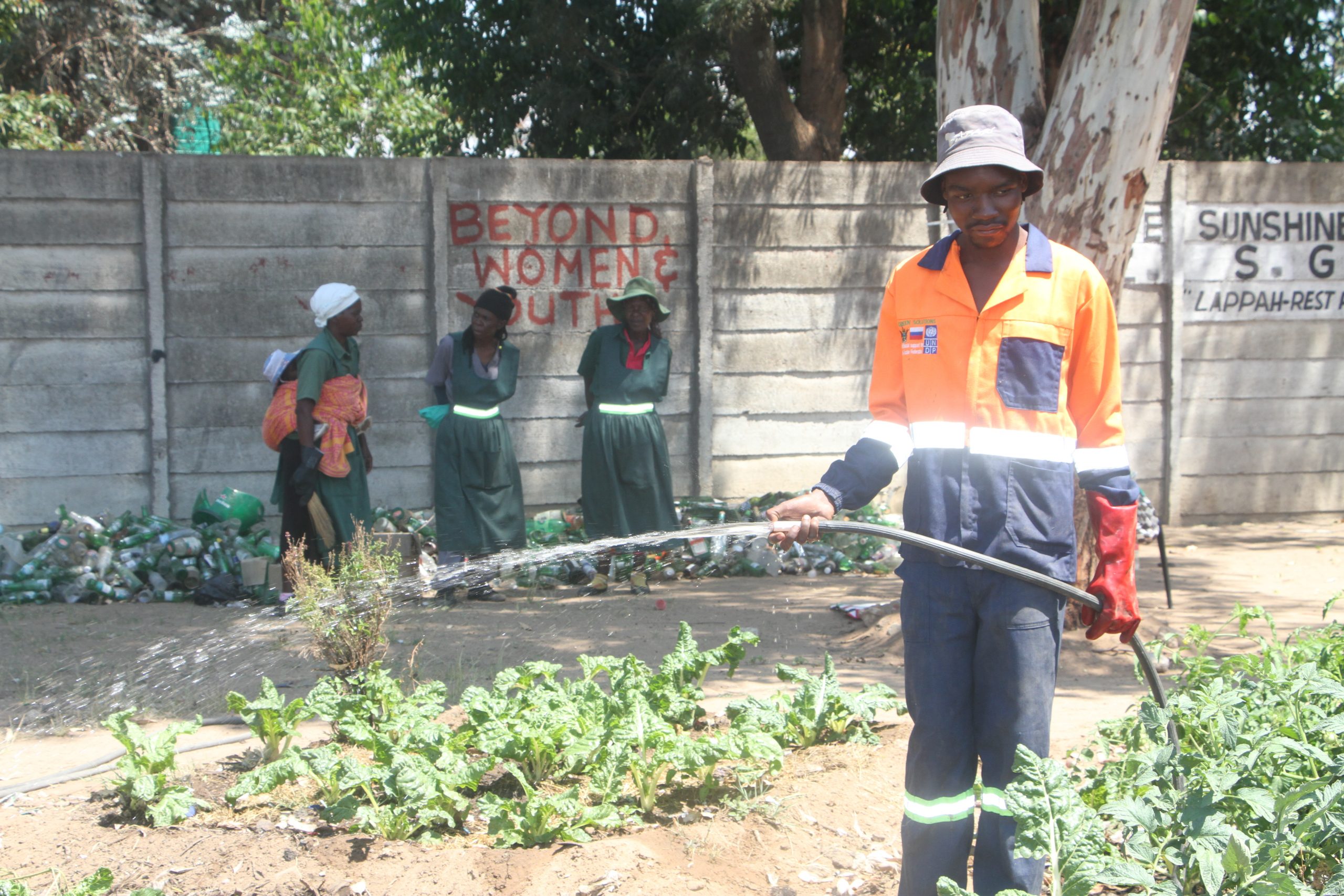
Co-operative members on site
The project sought to increase community resilience to respond to Covid-19 through the implementation of Green Solutions. The Green Solutions project provided support to establish community enterprises, create green jobs and establish effective waste management solutions for the markets. A total of six enterprises were established – 3 in Chipinge,1 in Mutare, 1 in Harare and 1 in Gwanda. 74 green jobs were created. Additionally, 1 organic waste to biogas solution (biodigester) was constructed and 1 waste transfer station established in Chipinge, 1 solar drier was also installed. 1 material recovery facility was established in Mutare and another one in Gwanda. 1 biodigester is under construction in Harare.
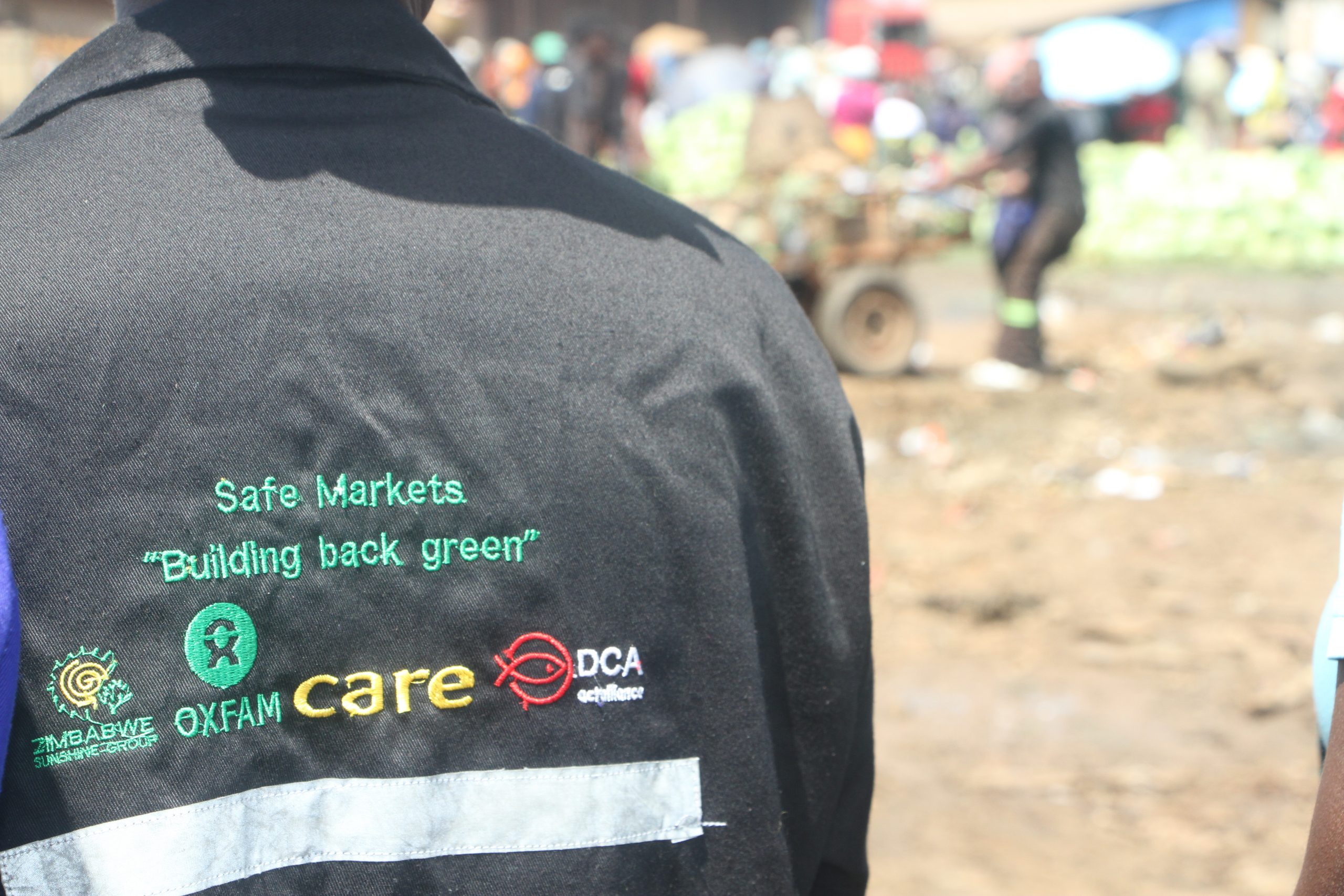
Project site scene
Highfield Background
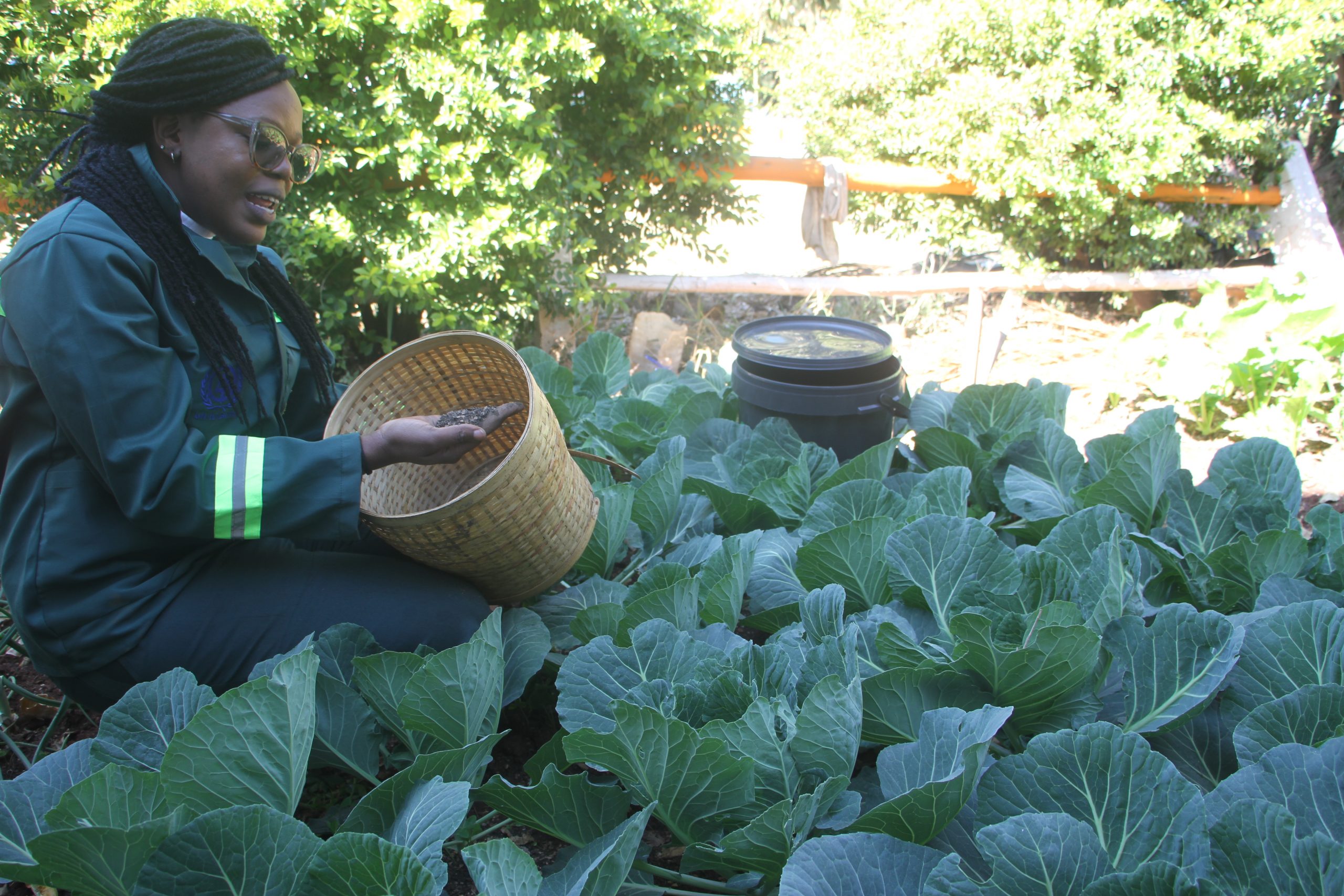
Image Description
Clean-up campaigns have been our trademark since inception. Nearly 2 decades ago, a group of young people set out to clean-up the streets of Harare setting the tone for our work today. We collaborate with government institutions, local authorities, the private sector, local communities and learning institutions to amplify the call to clean-up the environment. Whilst at it, we enjoy raising awareness on key environmental messaging and capacitating organizations to run the campaigns in an environmentally efficient way.
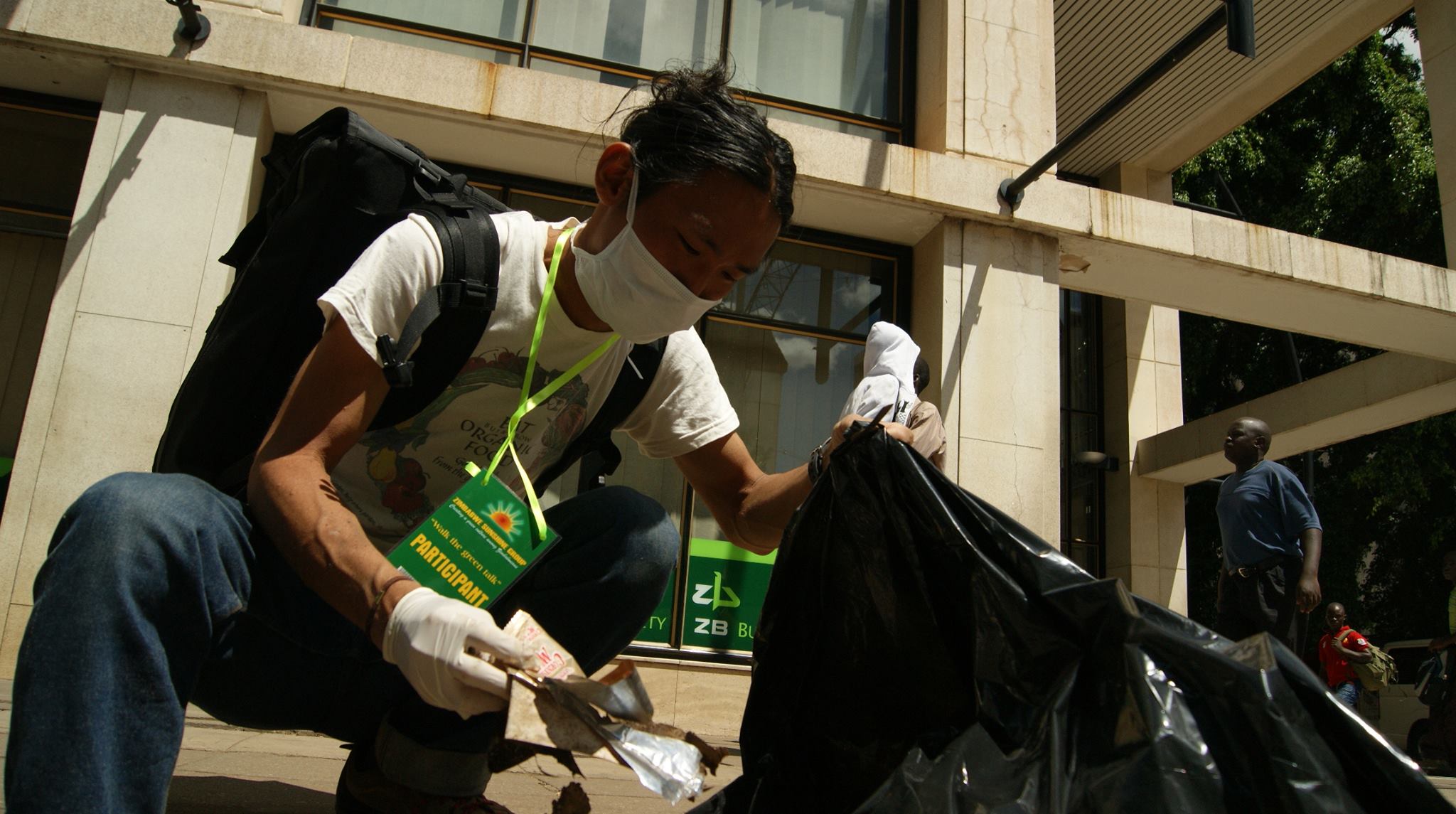
A participant during a Clean-Up Campaign along 1st Street in Harare
Sustainable Waste Management
Our projects are anchored on the key principles of sustainability, emphasizing the importance of minimizing resource consumption and waste diversion buttressing the zero waste to landfills approach. By adopting these principles, we aim to demonstrate the practicality and effectiveness of closed-loop systems in various contexts. Our innovations are designed to transform the environmental landscape equipping our project beneficiaries with practical skills and knowledge to tackle climate change.

Harare Sustainable
Cities InitiativesCatalyst for Zero
Single Use PlasticBeyond Youth
And WomenDobha Uphile/Nhonga Urarame/
Pick for SurvivalGreen
Solutions
Provision of sustainable urban basic services is crucial in transforming urban life as we know it. We are enhancing urban access in low-income communities to clean energy, sustainable waste management and an efficient built-environment . The HSCI aims to improve the living conditions of the urban poor in Harareby implementing sustainable waste management practices, promoting clean energy access, and achieving energy and resource efficiency in the built environment. The initiatives are expected to be implemented over a four-year period from 2023 to 2026, with a budget of USD 6,800,000. The initiatives will involve upgrading and strengthening existing facilities in low-income communities within proximity of informal settlements. Each location will have specialized facilities for different waste processing categories, including material recycling, biogas production, compost production, briquette production, renewable energy technologies, and the production of climate-resilient and energy-efficient building materials. The project is supported with funding from the SIDA through UN-Habitat in collaboration with other implementing partners.

The overall goal of the project is to reduce the use of single use plastics through implementing sustainable plastic reduction innovations in communities. Over 150 women are benefitting from the solar system, machinery and sewing machines secured as part of the project. Women in Mabvuku re-purpose old fabric to carrier bags as an alternative to single-use plastic carrier bags.
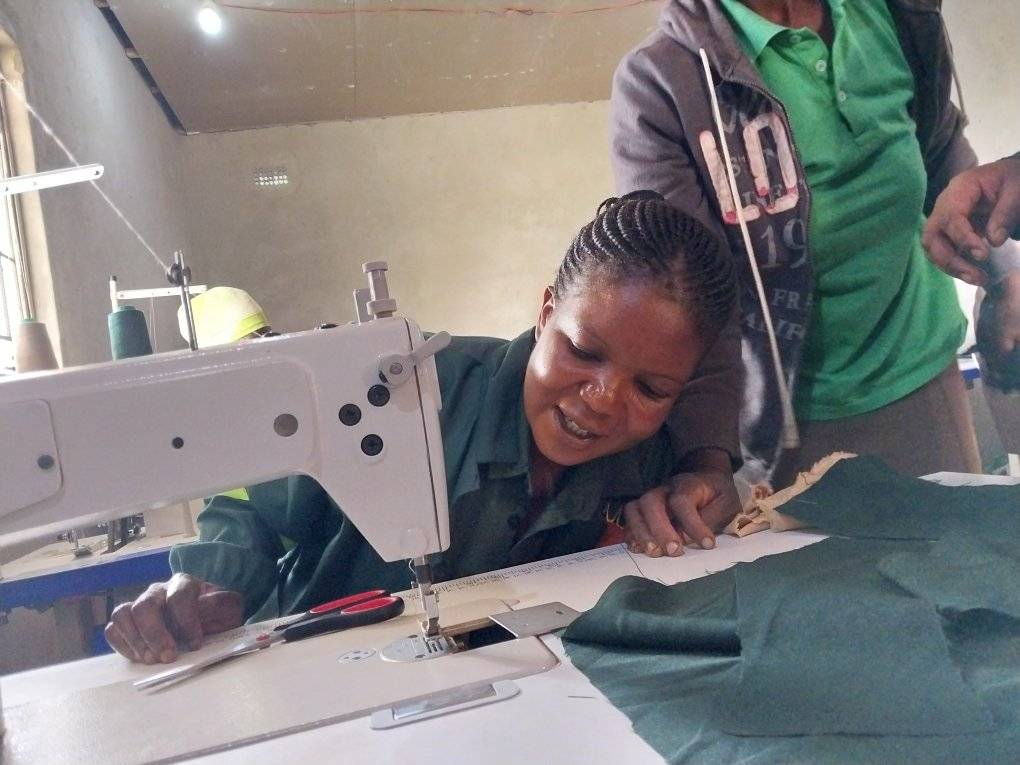
Project beneficiairies during a sewing training at the centre
Supporting the resilience of vulnerable populations to economic and climate challenges. The Beyond women and youth project started in October 2021 and has so far created 120 jobs within the area of Mabvuku/Tafara and Caledonia. Jobs created were derived from people highly involved in the waste value chains which include waste pickers, waste sorters, waste buyers and waste processors. The Beyond women and youth has so far recovered an approximate of 8 tons of plastic (PET & HD) which was sold to recycling companies. Recovering waste and managing it at a waste transfer has multiple environmental benefits and contributes positively towards greenhouse gas emissions.
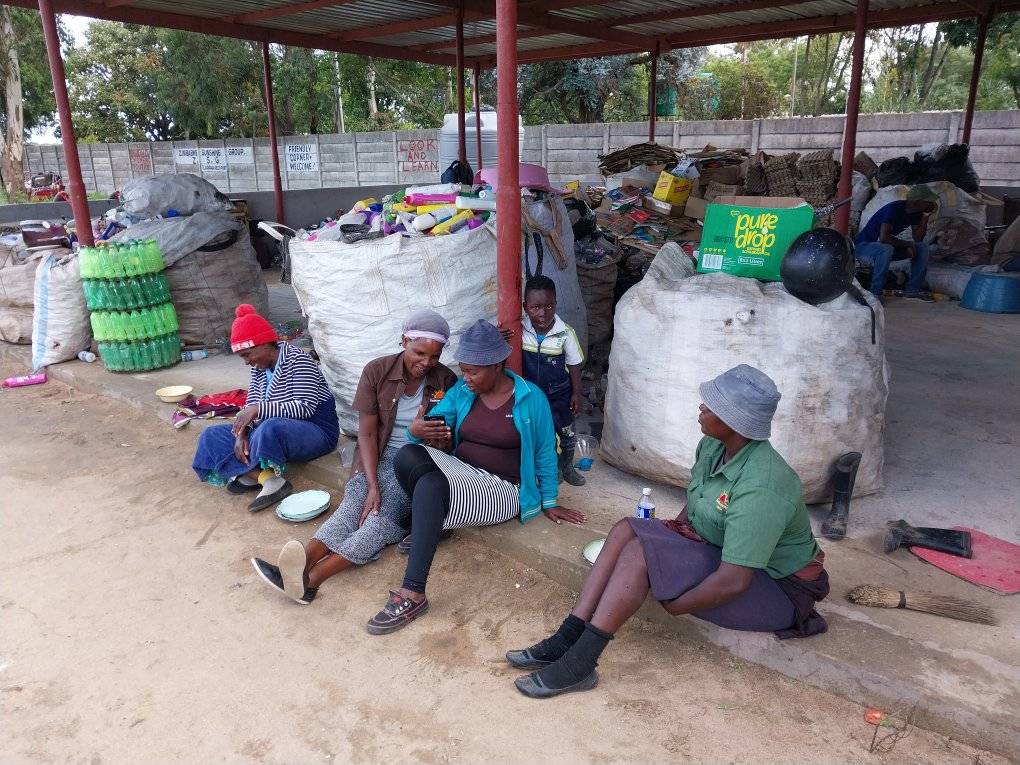
Beneficiaries taking a break during work
Dhoba Uphile/Nhonga Urarame/Pick for Survival is project that was established to empower women who were formally sex workers. The project seek to create an alternative same income stream for the women through undertaking sustainable waste management activities like recovery and processing of recyclable materials. The waste transfer station was constructed in the 2021 reporting period. This facility is situated in the heart of the Epworth community operated by a group of local women. The facility processes an average of ….. tons of waste per month in the year ending September 2024. On average , beneficiaries of the site make $ per month from recycling activities.

Epworth Waste Transfer Facility
The project sought to increase community resilience to respond to Covid-19 through the implementation of Green Solutions. The Green Solutions project provided support to establish community enterprises, create green jobs and establish effective waste management solutions for the markets. A total of six enterprises were established – 3 in Chipinge,1 in Mutare, 1 in Harare and 1 in Gwanda. 74 green jobs were created. Additionally, 1 organic waste to biogas solution (biodigester) was constructed and 1 waste transfer station established in Chipinge, 1 solar drier was also installed. 1 material recovery facility was established in Mutare and another one in Gwanda. 1 biodigester is under construction in Harare.

Project site scene
2Wise2Waste School Clubs

Zimbabwe Sunshine Group Youth Network
Greening Initiatives
Our membership consists of environmental clubs fostering environemntal education and awareness amongst young people.
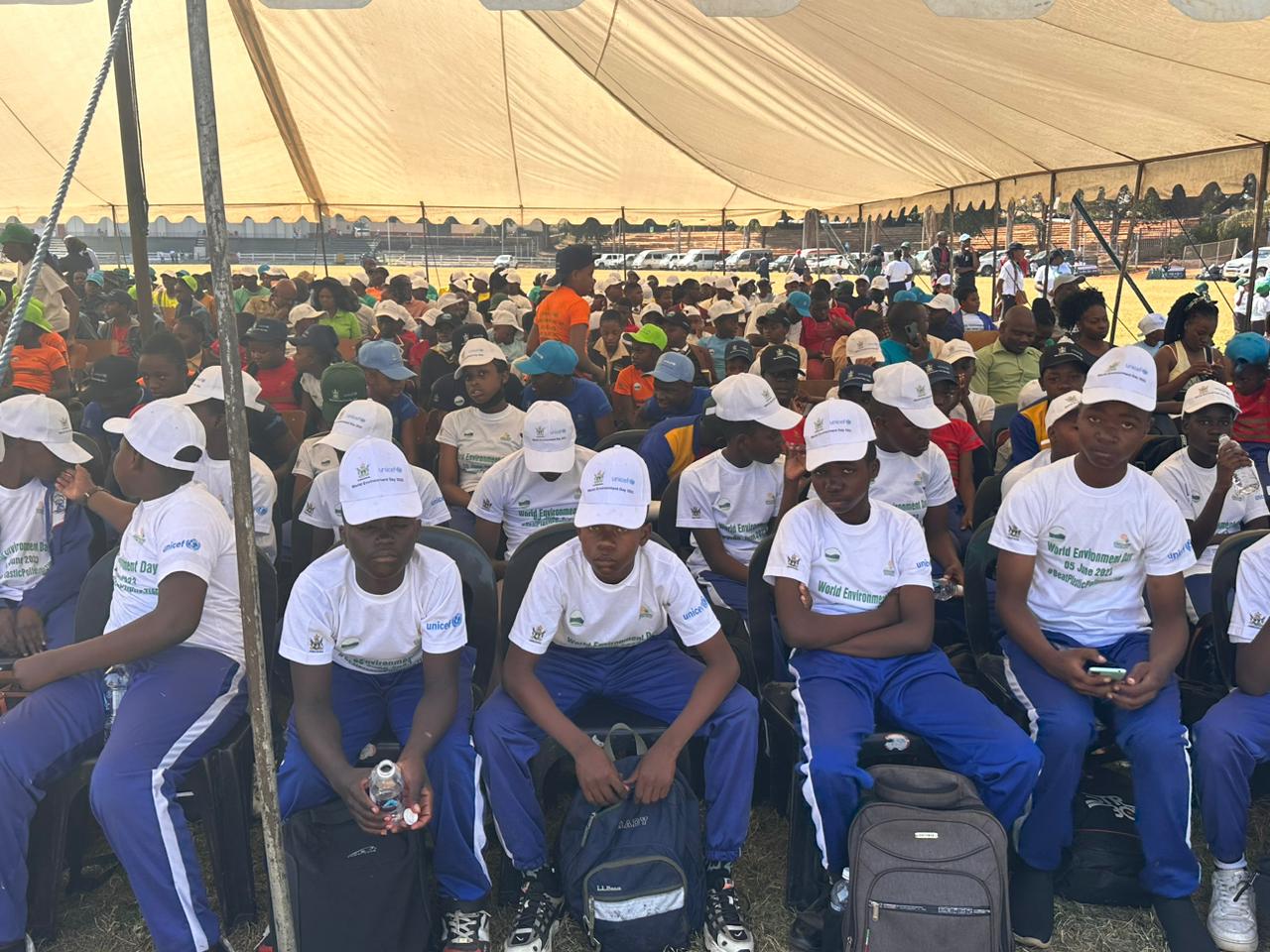
Members of 2Wise2Waste at World Environment Day commemorations 2024
The ZSG Youth Network integrates youths in and out of college to participate at local level in environmental sustainability. The Network is open for membership to young people from all walks of life.
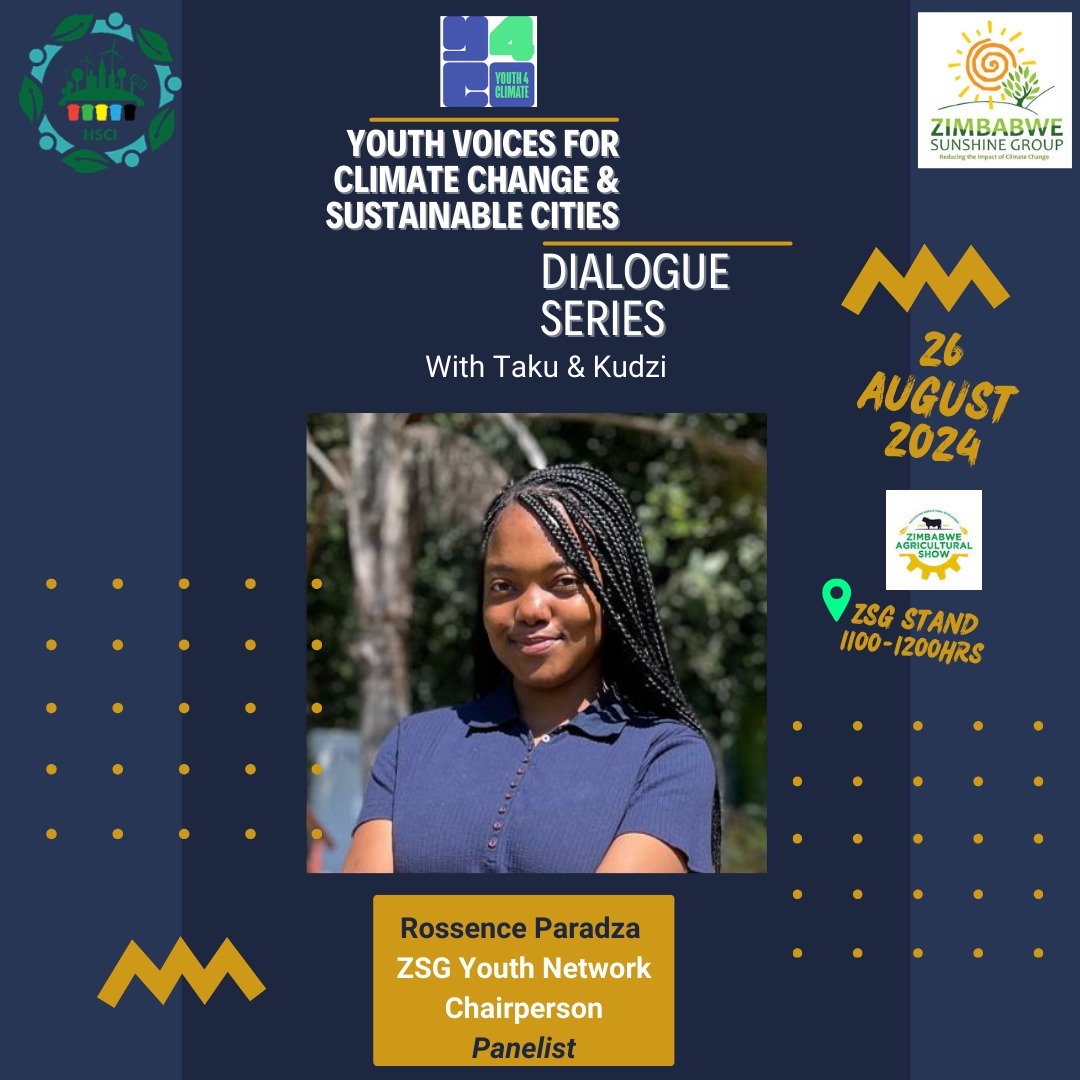
Through the 2Wise2Waste schools network,we embark on greening initiatives across a diversity of schools around the country. Young people from pre-school to high schools are engaged in their school clubs to carry out greening initiatives such as tree planting & clean-up campaigns to reduce emissions into the environment. Membership is open to all schools.Contact us to be part of this intiative.
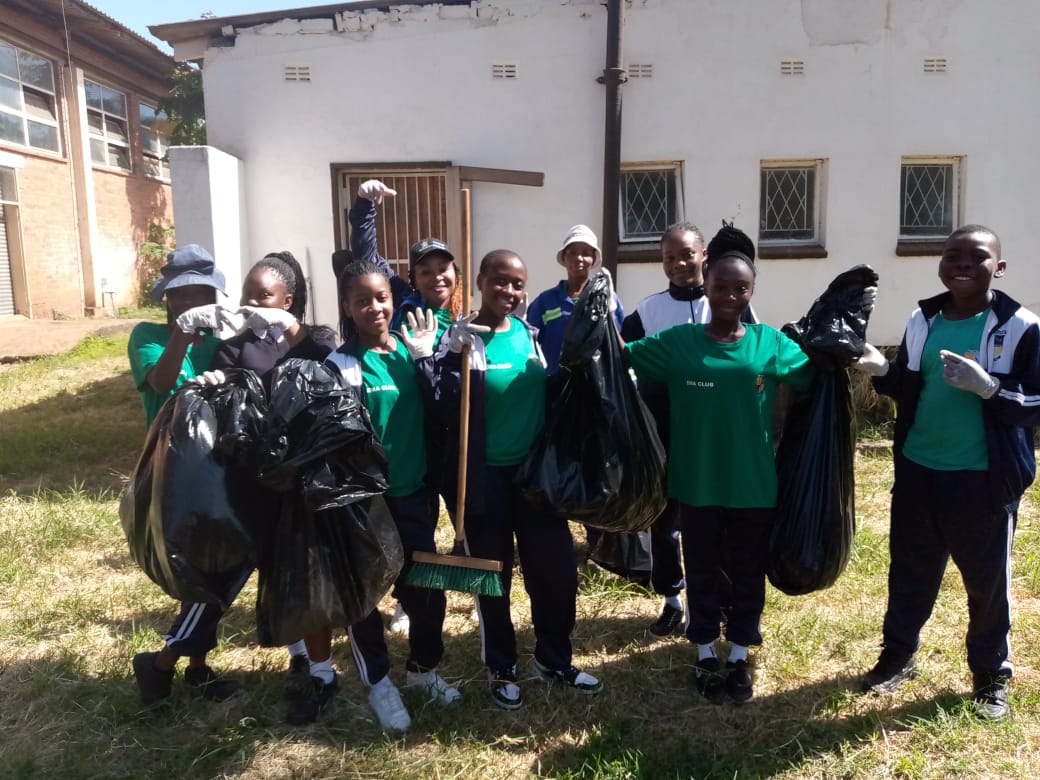
Mmebers of 2Wise2Waste school clubs during a clean-up campaign

Urban Smart Fermentation
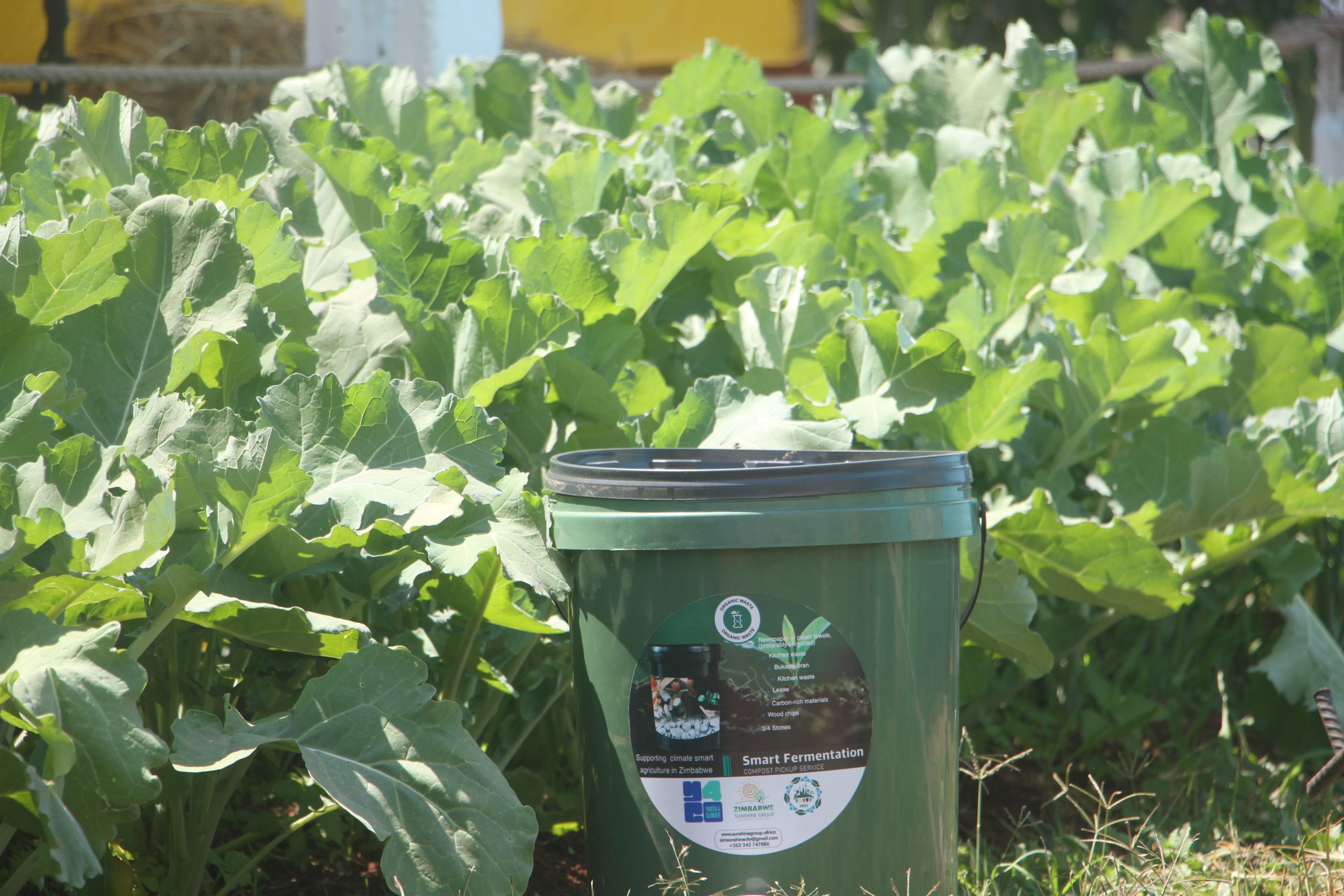

Abandoned Plastic Fish Nets
Buy Back Scheme
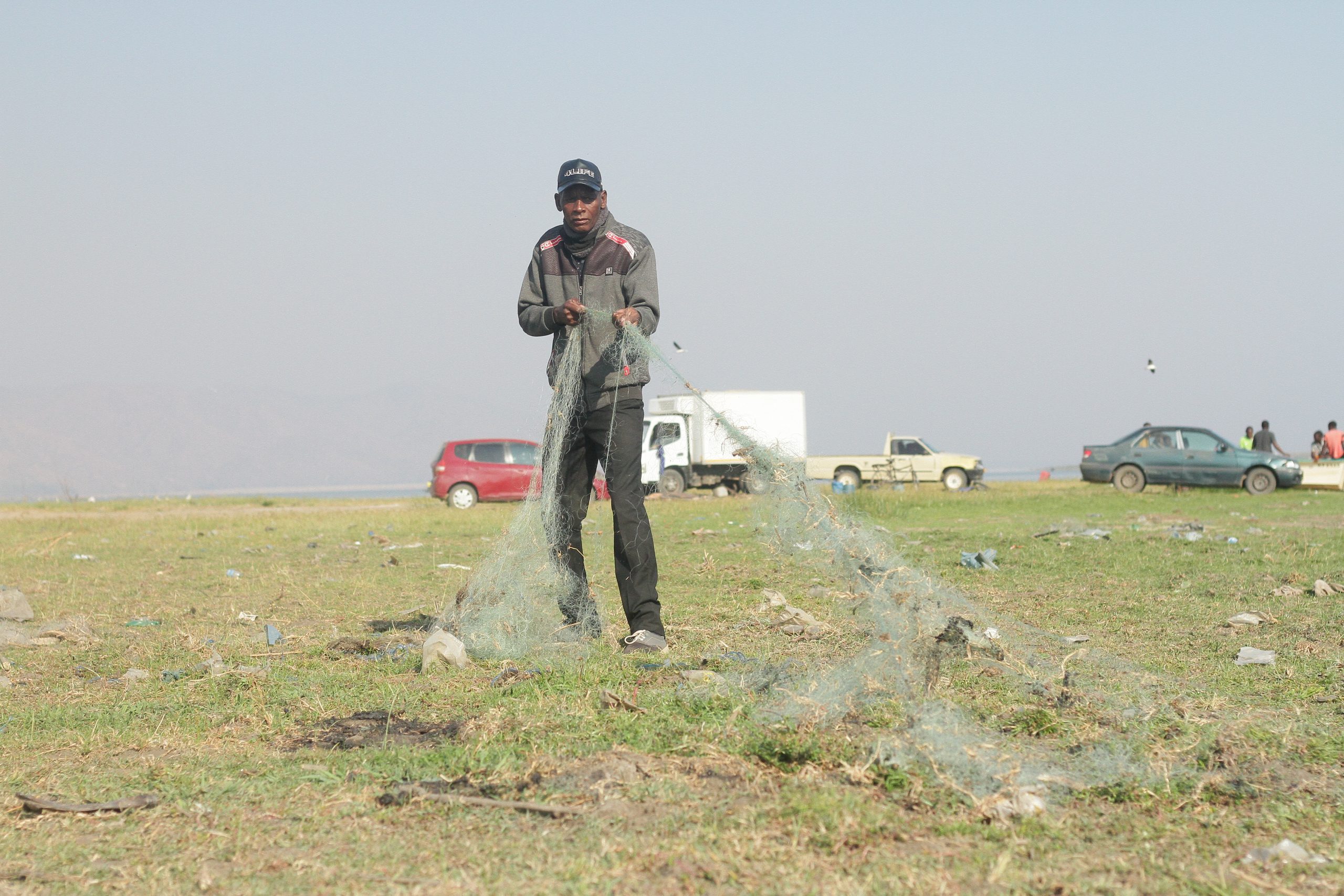
Stand Number 164D
Corner 1st and Forth Street
Harare Showgrounds
Zimbabwe
Telephone: +263748586
Cellphone Numbers:
+263-773967541 / +263-773182618 / +263-776272801
Email Address:
- CTCN Member

